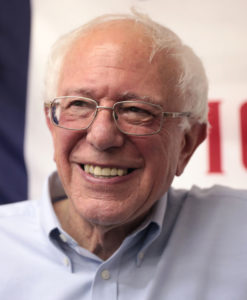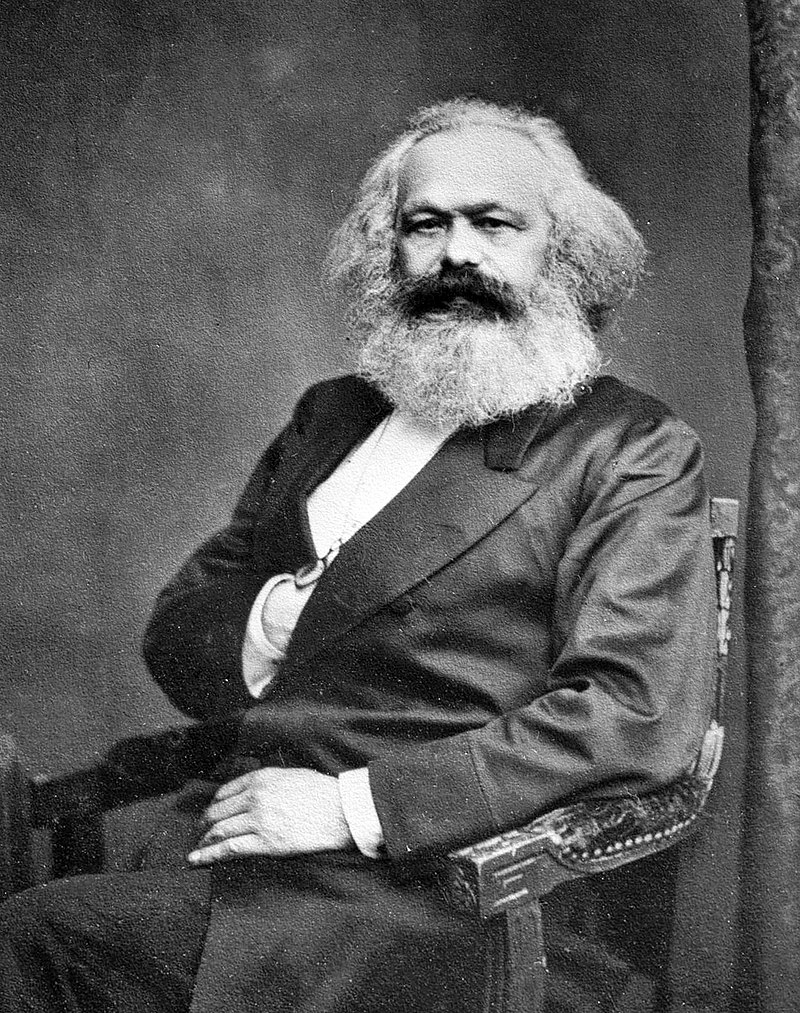
I’ll have no hesitation voting for Bernie if he becomes the nominee, but if he does, I’ll want him to win — the country will need him to win.
But he faces a huge, obvious obstacle, and instead of dealing with it, he and his supporters are dismissing it: almost everyone thinks he’s a socialist, and that is a probably fatal brand for a general election candidate.
Instead of addressing that problem head on, Bernie keeps running on his policies. Many of his supporters, meanwhile, dismiss any talk of the socialism issue as an establishment conspiracy.
It seems to show a lack of even a basic grasp of branding’s importance. That, or a reckless lack of concern with it.
How important is it? Well, Donald Trump is nothing but branding, and he’s the president — and thanks to nothing more than branding, he may be again.
Bernie says it’s incorrect to call him a socialist — as if correcting the facts could be nearly enough in this world. And then, perplexingly, he goes on calling himself a socialist.
Or rather, a Democratic Socialist, which he says is different. Doesn’t help at all.
The trouble is, no mere adjective like “Democratic” will make any difference in branding terms — and furthermore it just adds to the confusion, because Bernie isn’t really a Democratic Socialist either.
I take him at his word about not being a socialist. So do actual socialists like Noam Chomsky, who calls Bernie a “New Dealer” in the mode of Franklin Delano Roosevelt.
And the Democratic Socialists of America say Bernie isn’t a socialist. The trouble is, most of them say he also isn’t one of them — because they really are socialists and, again, Bernie isn’t.
So he isn’t a socialist and he isn’t a Democratic Socialist. What is he? By all appearances, Bernie is a Social Democrat, also known in the USA as a progressive.
The difference matters a great deal: a socialist wants to destroy capitalism, while a Social Democrat wants to reform it.
And in addition to that substantial difference, please note the all-important branding contrast: one phrase lands on “Socialist,” the other on “Democrat.” What people hear and remember is that last word.
Although Social Democrats are pretty far left by modern American standards, they’re still within the mainstream — to this day, FDR is one of the most respected of all presidents. But socialists are well outside the mainstream, and always have been, going back to Eugene Debs’ Socialist Party of America in the early 20th Century. In multiple presidential campaigns, Debs never won a single electoral vote, and despite a brief surge during the Depression (and before the truth about the Soviet Union became widely known), socialism has been a fringe position ever since.
Yet Bernie keeps on calling himself a Democratic Socialist, which both sounds like it means an outright socialist, and, according to most Democratic Socialists, actually does mean that.
In branding himself a socialist while arguing that he isn’t one, Bernie imposes a heavy and needless drag on his own campaign. It’s like starting the Day-Old Bread Company and then having to spend all your time convincing people “I didn’t mean it! The bread’s actually fresh!”
Now some will argue that this is all wrong, that the world is changing, and the socialist brand is no longer a handicap. After all, polls show socialism is more popular these days, especially among the young.
But those polls also show that most of the population still fears and hates socialism. Presidential elections are typically won by a few percentage points. Why spend a campaign fighting to change how tens of millions of people feel about a word, when you could be fighting to win their votes?
Others will point out that Bernie is leading in key primary states. But Democratic primaries, especially these early ones that split the vote among so many candidates, are very different from a general election. It’s the general election that Bernie has to win, and it’s the general election in which he would will face a Trumpstorm of anti-socialist attacks.
Furthermore, even among the minority of Americans who say they like socialism, many are as unclear about what that means as Bernie is.
Like Bernie himself, what many of his supporters call socialism is actually Social Democracy. In describing what they want, they often cite the Scandinavian countries and their generous, forward-looking social programs. The trouble is, none of those countries is socialist.
Or they may point to FDR. But again: not a socialist. He was a progressive.
Or they may note that like all modern economies, ours already has socialist components, such as the military, public roads, and Medicare. But full-on socialism goes way farther. It means government control of the whole economy.
And except for a few failed holdouts like North Korea, every country that has tried that has abandoned it.
The reason has nothing to do with whether or not the people of those countries still believed in making things better. It’s that socialism made things worse.
The problem was complexity. It turned out that Marx’s Industrial Age theory of how societies work was over-simplified. An economy based on it just couldn’t keep up with the nearly infinite complexity of humans interacting with each other in unpredictable, often irrational ways. In retrospect it shouldn’t be surprising: Marx predated Freud by nearly 50 years, and complexity theory by more like 150 years.
So socialist economies stall, because theory keeps falling short of practice. Not enough wealth is generated to be worth redistribution.
Then there’s the equally serious problem of freedom in a fully socialized economy. Starting with the limits on who can own what, centralized control requires a greater reduction in individual freedom than most Americans have ever experienced. Fans of collectivism may say, “So what?“ But whether you like it or not, individualism is woven throughout American culture. Good luck changing that between now and Nov. 3.
As voters who think they’re socialists learn more about what it really means, many are likely to think again.
And Trump will be happy to help them along with an aggressive, entirely bad-faith education campaign.
If Bernie wins the nomination, he will be hit with the “socialist” brand all day, every day — by someone whose one demonstrable skill is wielding the emotional power of brands, divorced from any basis in fact, let alone confusing nuances like “Democratic Socialist.”
Crooked Hillary. Deep State. The Server. Witch Hunt.
Radical Socialist.
As deployed by Trump and his enablers, “socialist” won’t just mean someone who wants to give you good health care, education, and jobs, and is willing to raise taxes to do it. It will mean a dangerous extremist threatening you with a failed, oppressive system whose economics even Russia and China gave up on.
It won’t be a fair description of Bernie, but in our elections, fair isn’t on offer. Certainly not from Trump.
In the face of relentless, expertly targeted fear-mongering, Bernie will be stuck explaining how he isn’t really what he says he is.
There’s an old saying in politics: If you’re explaining, you’re losing. If you’re explaining what kind of socialist you are? Prepare to lose big.
Of course, especially in the age of Trump, we have to recognize that no one can predict the future. It could be that we get another big surprise and President Sanders is sworn in next January.
But we can predict risk.
And calling the risk Bernie faces an “establishment conspiracy“ won’t make it go away. On the contrary, if you want to see what an establishment conspiracy really looks like, just wait and see what the Trump campaign and its partners, domestic and foreign, have in store.
Bernie could become the nominee, as those polls he’s leading do show. If he does, we’ll need him to run a campaign that can win.
The “political revolution” he promises is a statement of faith, not a campaign strategy. A campaign strategy would show how a victory can happen in the world we have, not in one that somehow comes into being between now and Election Day.

